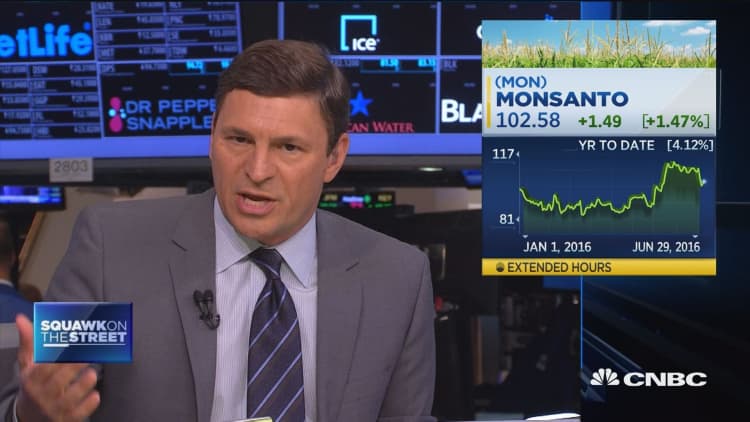
Boutique banks are taking a bigger bite out of Wall Street's top line this year.
Boutique investment banks took 17 percent of United States M&A revenue in the first half of 2016, according to data kept by financial services analysis firm Dealogic.
That's a slight increase over where it stood at this time last year, when Dealogic pegged boutique's M&A disruption at 16 percent of the market. It was once as high as 18 percent, meaning that smaller banks could be on track for a banner year on Wall Street if they pick up their pace even just a little bit. And some boutique bankers are optimistic that's what will happen in the second half of the year.
But, more importantly for the boutiques — and perhaps for Wall Street as well — the smaller banks' share of deal revenue is up big, over a longer time-frame. In 2008, before the global financial crisis was in full swing, boutiques had a mere 8 percent wallet share.
More boutique banks have emerged in recent years. Hotshot bankers, feeling burned by deferred compensation and being on the receiving end of angry public perception, decamped to a number of upstart boutiques. Now, some firms, including banks that have been formed relatively recently, are taking back mega-mandates from behemoth Wall Street banks that are desperately in need of more cash on their balance sheets so they do not have to continue cutting jobs to keep profitable.
Dealogic says that for the first half of 2016, Evercore Partners topped its boutique bank rankings. The bank brought in nearly $190 million in first half M&A revenue, putting it ahead of second- and third-place finishers Centerview Partners and Moelis & Co. Each of the firms declined to comment.
Part of boutiques' rise in 2016 comes hand-in-hand with the rising tendency for big tech companies to do mega-deals this year. For the $26.2 billion acquisition by Microsoft of online employment network LinkedIn, both boutiques Qatalyst Partners and Ducera Partners will claim millions in fees on the biggest tech transaction of 2016.

Ducera is a relative newcomer to the space, and, about a year into its existence as a boutique, the firm has horned in on some major Wall Street deals. Along with its work for LinkedIn on its sale to Microsoft, Ducera also represents Monsanto in the multinational conglomerate's ongoing considerations of a deal with Bayer.
Boutique bankers, who asked to not be quoted as they weren't authorized to speak on the record, said they're expecting things to get better in the second half of this year. The total amount of M&A fees for all banks to divvy up this year was down 19 percent, to $33.7 billion, according to Dealogic data. But boutique bankers said things are looking up for the second half of the year, and it could mean Wall Street needs to watch out.
"There are a lot more boards thinking M&A now, than there were at the beginning of the year," said one banker from a top-ranked boutique bank.


